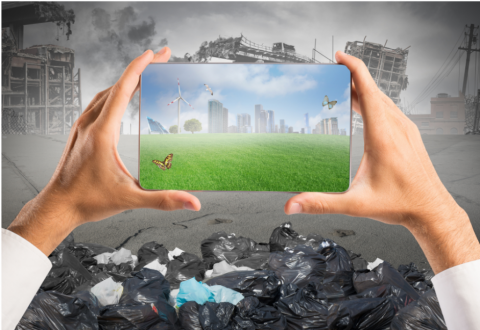
Opinion: A Prelude to the 2020 Finance in Common Summit
By: Melania Chiponda, Debbie Stothard, Wesam Ahmad
The COVID-19 pandemic represents one of the greatest challenges to our generation. While exposing the myriad structural problems and systemic failures brought about by globalization, it has also shown the greater interconnected nature of humanity as a whole.
As we brace ourselves for the ongoing and combined impacts of the pandemic, climate change, conflict, and economic crises, we have faith in humanity’s ability to overcome these challenges to create a more equitable and sustainable world. That means a comprehensive, multilateral, just recovery strategy for the day after tomorrow.
The world of finance has an important role to play in this process. The question we present to participants in the 2020 Finance in Common in Summit is; “what will that role look like?” Will you be part of the global transformation that is vital to the survival of diverse communities and ecosystems, or will you block it? Will you be willing to work for inter-generational equity or will you waste resources to restore the dysfunctional pre-pandemic status quo? How do we plan for an equitable, just and resilient recovery? Should investments by Development Banks be aligned to the Paris Climate Agreement?
This first ever Finance in Common Summit offers an opportunity to interrogate and reimagine development finance in a way that should develop the global architecture to deal with potential vulnerabilities. The Summit brings together all the components of the development finance system therefore enabling the setting up of a system which enables coordinated policies and inclusion of all financing players.
John Maynard Keynes said in 1936: “The outstanding faults of the economic society in which we live are its failure to provide for full employment and its arbitrary and inequitable distribution of wealth and incomes”. More than 80 years later, these grievous faults remain; with transnational corporations and finance institutions playing a central role in their perpetuation and exacerbation. In doing so, corporations and finance institutions cancel out the good they do with the harms they cause to the poor and the marginalized.
The accelerated accumulation of wealth and its grossly inequitable distribution throughout the world has become even more acute during the course of the COVID-19 pandemic. These intense gaps in wealth, both within societies and across borders, severely undermine the stability of humanity within the international system and the planet’s ability to sustain it. On the ground, this has brought communities – the urban and rural poor, the working-class, indigenous peoples, women, migrants and stateless - to the knife-edge of survival.
Across the globe, governments are espousing post-pandemic recovery packages focused on massive development projects aimed at stimulating economic growth. The World Bank and International Monetary Fund, for example, have disbursed $21 billion and $100 billion respectively to 81 countries in response to the COVID-19 crisis, against the $2.5 trillion that is needed by the developing countries. Even against that background, from Africa to Latin America, from the Middle East to East Asia, communities are horrified. Previously hit by the onslaught of “development” projects that routinely featured forced evictions and brutal human rights violations, indigenous peoples and other communities on the ground are still reeling with the disproportionate impacts of COVID-19. Now they face the threat of a new wave of “development” projects that will attack their fundamental right to survival, a tsunami of abuses possibly underwritten by the public development banks gathered at the Finance in Common Summit. Communities in the Global North are also facing similar challenges and although these challenges may take different forms, the impacts are very similar.
It is for this reason that we write on the occasion of the 2020 Finance in Common in Summit to challenge finance institutions to apply their innovations, power and influence towards developing a more equitable global society based on human rights, equity and social justice.
We recognize that such a transition will require all of us to work together, across tangible and intangible barriers. We must move together with the understanding that humanity cannot exist independently from the laws of nature as whole, where all systems inevitably seek equilibrium. While concepts like power, profit and resistance are relative, the mathematics behind optimal equilibrium is absolute. A regenerative economy that is informed by ecological and social wellbeing is what we should envision.
Just as COVID-19 has forced us to change our day-to-day behavior to keep our families safe, we need to change the orientation of our economic activities. Never before in history have we had the means and the urgency to do so, as now.
This is a matter of political will – of governments and public development banks that already have the responsibility to eradicate poverty, not intensify it. The question is not whether our economies can afford to change, but whether the earth and humanity can afford the status quo.
Author's Biographies:
Melania Chiponda (Zimbabwe-Africa): is a human rights defender and advocates for economic, social and environmental justice for marginalized communities. She's also an active individual member of ESCR-NET Economic Policy Working Group (EPWG) and the Project Advisory Group (PAG) of the Systemic Critique Project.
Debbie Stothard (Thailand-Asia): is a human rights advocate and the founder of ALTSEAN-Burma, an initiative to develop innovative human rights training and programs. She is also a member of ESCR-Net Corporate Accountability Working Group Steering Committee.
Wesam Ahmad (Palestine-MENA): is a human rights advocate from Palestine working at Al Haq, a human rights organization in Ramallah. He's also an active member of ESCR-NET Economic Policy Working Group.
